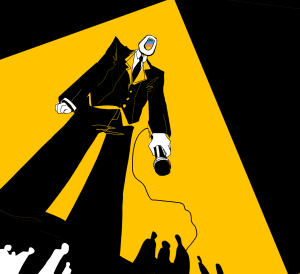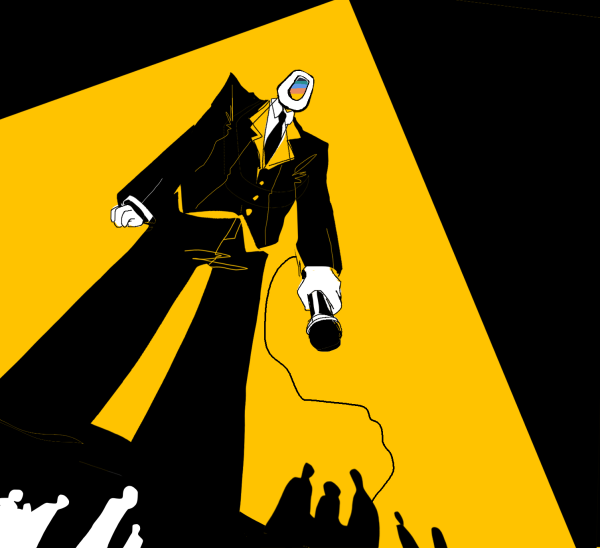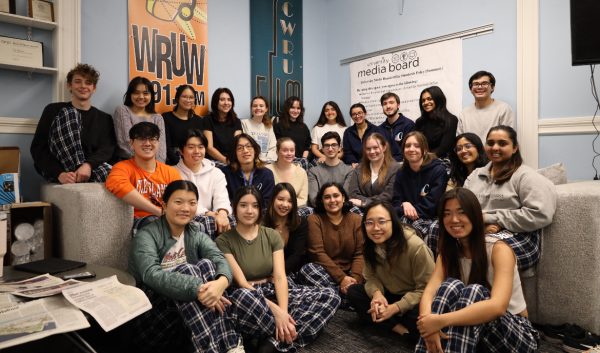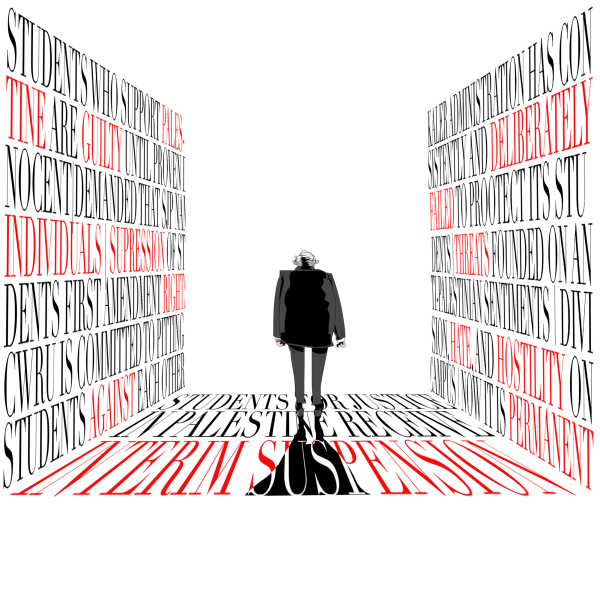Editorial 14
December 9, 2016
Student Involvement in Campus Issues: A
During a year marked by divisive politics, Case Western Reserve University students stepped up to ensure their voice was heard. Campus organizations took it upon themselves to help register students to vote. Groups such as the Radical Student Union also made their presence known on campus, chanting their disapproval of a Donald Trump presidency outside of Kelvin Smith Library.
For many students, the election did not simply represent partisan politics, but their humanity as a whole. Trump’s campaign was perceived to be based around hatred and intolerance towards minority groups, and in the minds of many people, his victory symbolized that minorities will no longer have a place in the United States.
Many CWRU students have done their part to demonstrate that this campus does not tolerate bigotry, though more work remains to be done. The environment on campus has been mostly welcoming, and while many issues facing minorities have not been resolved, our student body has shown that it is willing to spark conversation about and take steps to fix these issues.
University Program Board: B
Starting off the beginning of the semester with CWRUchella, UPB set themselves up for success later on in the season. The Fall Concert saw success and positive student response; the headliners this year were two well-known hip-hop artists: Waka Flocka Flame and Lil’ Dicky.
Those who work with UPB love what they do, and it reflects in their consistent efforts to improve since last year. UPBeats has garnered greater student turnout than last semester’s Spot Night, although there is still room for improvement, as D.R.A.M. had the highest turnout but didn’t fill The Jolly Scholar’s makeshift dance floor. The change of venue to The Jolly Scholar, a continued change from last semester, does create a more fun “night out” feel for those who do choose to attend. The concerts also occur less frequently than Spot Night, allowing for UPBeats to feature more popular artists, which can be a pro or con depending on who you talk to.
The ticketing process for trips has proven to be another space in need of improvement, as it is constantly changing. It’s good to see the organization is trying out new ticketing strategies, but there needs to be some type of consistency to reduce confusion.
We hope to see UPB continue to improve next semester.
Undergraduate Student Government : C+
The Undergraduate Student Government (USG) has faced internal criticisms of their diversity this semester. Third-year USG representatives Edward Bennett and Maleeka Aljawad called for dissolvement of the University Diversity Collaborative (UDC) in order to increase representation of brown and black students in USG, where their voices can be heard in the organization’s legislative process.
Their call for dispersion was met with no comment from USG beyond a note in its newsletter saying that these members’ comments did not reflect the view of USG. However, USG President Brian Ward has worked since the beginning of the semester with UDC President Lilly Tesfai on the organization’s ad hoc diversity committee, which has been revamped to improve USG’s internal diversity. Its effectiveness will not be known until next semester, though.
Aside from the diversity issues, USG has made great strides in financial transparency of their actions. In accordance with the new SEC Constitution, USG released predictions for how they would use the Student Activity Fund (SAF), and how much of these allocations would go to student organizations versus internal uses for the current semester. This was the first semester that students saw how their $182 per student contribution to SAF is spent. Generally, it goes towards various extracurricular activities and events for students to enjoy and participate in, but now we will be able to see in detail how it is spent.
Ultimately, USG’s notable improvements in financial transparency don’t entirely outweigh its lack of transparency regarding its own diversity, and we hope to see this addressed next semester.
Greek Life: B-
First, the Zeta Psi house was lit this semester. Lit on fire during a “ritual being performed,” as the campus Fire Log entry stated. Luckily, none of the brothers were harmed, though the third floor experienced smoke and fire damage.
More notably, Sigma Phi Epsilon (SigEp) was removed from campus this past September due to violating university rules while on probation. They hosted a party with alcohol that involved brothers under the legal drinking age.
The event of a chapter being revoked from campus is a relatively rare one. In the past 20 years, it has only happened in 1996 and 2007.
The Greek Life Office (GLO) addresses these issues in a timely manner, but occasionally we do not feel that the sanctions they assign are effective. For instance, last semester, the variety show incident sparked a dialogue around campus regarding Phi Delta Theta’s (Phi Delt) skit that portrayed Latinx people in a stereotypical manner, dressing in ponchos and sombreros and referencing Donald Trump’s plan to build a wall. There were no sanctions announced to the public, but La Alianza and Phi Delt worked together and had an open dialogue about race that was expected to fix the problem.
This semester, however, at a Halloween party, a member of Phi Delt wore the same costume that seemed to spurn earlier cooperative efforts. While the message appears to have gotten through to the most of the members, it does not appear that everyone took the conversation with La Alianza seriously. The GLO needs to take a stronger stance on issues regarding race, or at the very least, make clear guidelines known to all students so we know when to expect the GLO to take action.
The actions of the solo member of Phi Delt or the former SigEp chapter are not representative of Greek Life as a whole. The other chapters have contributed to campus and the surrounding areas positively with various events that promote community involvement, physical activity and other positive things.


















